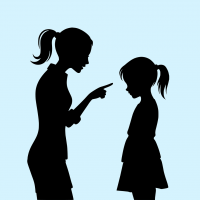Since I joined Bear Sterns in 2006, I have had many opportunities to discuss business in Japan with non-Japanese businesspersons. Most of them have said that Japan is very peculiar market and it’s really difficult to tap Japanese market and to develop their business here.
From my point of views, Japanese are diligent, obedient-generally-, and in an ideal top-down structure, so I have always been wondering how come those foreigners have such impressions.
However, quite recently, I ‘ve got better explanation on it. Due to the stay- home period caused by COVID-19, I had a plenty of time to learn the history, global environment and the power balance in the world. I also spent some time to analyze our own culture and found out that yes, Japanese mentality and philosophy are so different from others.
Seigo Matusoka, https://seigowchannel-neo.com/ a philosopher and researcher, mentioned that the principle concept of Japanese culture is transformation and harmonization. We took Chinese cultures, but we transformed them into our own culture by harmonizing two different features. In that sense, among Asia, Japan seems to be the only one country which has had a strong exposure to imperialism but not fully influenced or rather got transformed itself in a harmonized new culture.
In the business scene, people who wish to introduce new concept to the new market have had the same struggles to make the system penetrated in the society.

Mr. Hideaki Fukazawa, who used to be the head of Tokio Marin Capital, shared his views and experiences with us through Kobahiro Finance Club organized by Mr. Hiroyuki Kobayashi, the president of Social Capital Management. https://www.social-capm.com/
Mr. Fukazawa turned to be CFO of 150 year old family business, who owns an office building in Marunouchi, the center of Tokyo.
Looking back his around fifteen years of experience in private equity business, Mr. Fukasawa mentioned that PE is a sort of self-discipline through which we can practically learn the corporate finance. Additionally, we can learn how to understand others’ intentions, to show your compassion towards them, and finally to create a harmony among different parties with different interests.
Mr. Fukasawa also said that at the late nineties, when Japan started importing the idea of Private Equity, people were reluctant to take this idea and looked at PE players as vultures. “We are still on our way however, PE players are even unintentionally taking PE as invisible opportunities to lead us to the next stages.”
When I heard his words, I remember the peculiarity in Japan. Over the history, we have had many perils as non-Japanese tried to invade our society however, we have dealt them with our own problem-solving methods. This is not either fighting with our opponents or devastating them. Instead, Japanese have been accepting them, transforming their force into a harmonized new concept.
Thus, when it comes to the private equity, we Japanese can develop this mechanism in our own way. For instance, let’s think about a middle size company which has a competitive technique, good market share, motivated employees and growth prospect, but lack of capital due to the unexpected pandemic. If non-Japanese investors can pick up such a company, support maintaining their growth, then get sufficient return over the next decade, this would be for sure the ideal harmony indeed.
This sounds like a dream but worth simulating. I came up with such an idea by attending this seminar.











